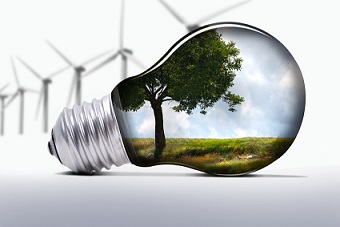 SMBs are to receive help from The Carbon Trust to reduce their carbon footprint and save money.
SMBs are to receive help from The Carbon Trust to reduce their carbon footprint and save money.
The Telegraph reported that “only one in 10 SMB owners” claims to have reduced energy usage last year and that means that 90 percent are uninformed about how they can reduce costs and carbon footprints.
It was noted that “The Carbon Trust estimates that SMEs could collectively save nearly £400 million ($490,466,566/€457,360,063million)” a year on energy costs and reduce their carbon footprint by 2.5 million tonnes of CO2. A survey conducted by YouGov/Scottish Power revealed that more than 60 percent of SMB owners did not consider energy efficiency a “key priority” in the workplace.
Mark Bowen, Marketing Director, Scottish Power, said: “Efficiency improvements can be low in cost but with a high impact – on the bottom line as well as on the environment. Adopting simple energy-efficient measures as an SME business owner may sound easy enough, but as the survey findings highlight, the reality is very different. Efficiency improvements can be low in cost but with a high impact – on the bottom line as well as on the environment. Many businesses we talk to admit they could be doing more but are put off because they believe that steps to incorporate energy efficiency into their business will be time-consuming and difficult.”
SMBs need to recognise that changes are necessary to improve efficiency and costs as well as help the environment and Bowne said: “Making smarter energy choices makes perfect business sense and will help firms to become more sustainable and efficient while reducing bills, which could allow investment elsewhere,”
Small changes can make a big difference said Rob Clark, Managing Director, Epson UK and Ireland, “UK businesses are really missing an opportunity to capitalise on more energy-efficient information technology,” and noted that only23 percent are active in implementation of energy efficient IT.
Clark suggests that changing from laser to inkjet printers can save 96 percent of energy which reduces CO2 by 92 percent while waste from printing will be reduced by 95 percent and if businesses in the whole of the UK did this there would be enough energy to run 60,000 houses.
Clark stated: “Investing in refills for everything from printer cartridges to pens or coffee can help reduce waste as well as cut costs. It’s a common misconception that investing in more sustainable technology means an additional cost, but that’s not always the case. Inkjet printers, rather than laser printers, can be more cost-effective for businesses, providing savings of up to 50pc per page printed, as well as reduced downtime and IT support, and increased productivity through reduced waiting time for prints.”
The head of the environmental consultancy Eunomia, Mark Hilton, said that many areas for saving energy required only common sense: “Insulate your building and switch to LED lights, if you haven’t already, and put controls on motors, compressors and other equipment. An out-of-hours audit will invariably find equipment left on,” which means that wasted power and water is costing the business money.
Scottish Power and The Carbon Trust have partnered up to help SMBs become more energy efficient believing that small changes could save them a “third of energy costs” a year.
Richard Rugg, Managing Director of Programmes, The Carbon Trust, said: “Energy saving is an easy win. Cutting money off the bottom line is a great way to increase profitability. But although there is often a considerable opportunity to reduce overheads, in most companies this often gets overlooked.”
Awareness is the first step to reducing a business’s carbon footprint and by changing small things like cleaning solutions to environmentally friendly chemicals can help to “improve water quality” and using refills for printer cartridges, pens and coffee can reduce waste and costs.
